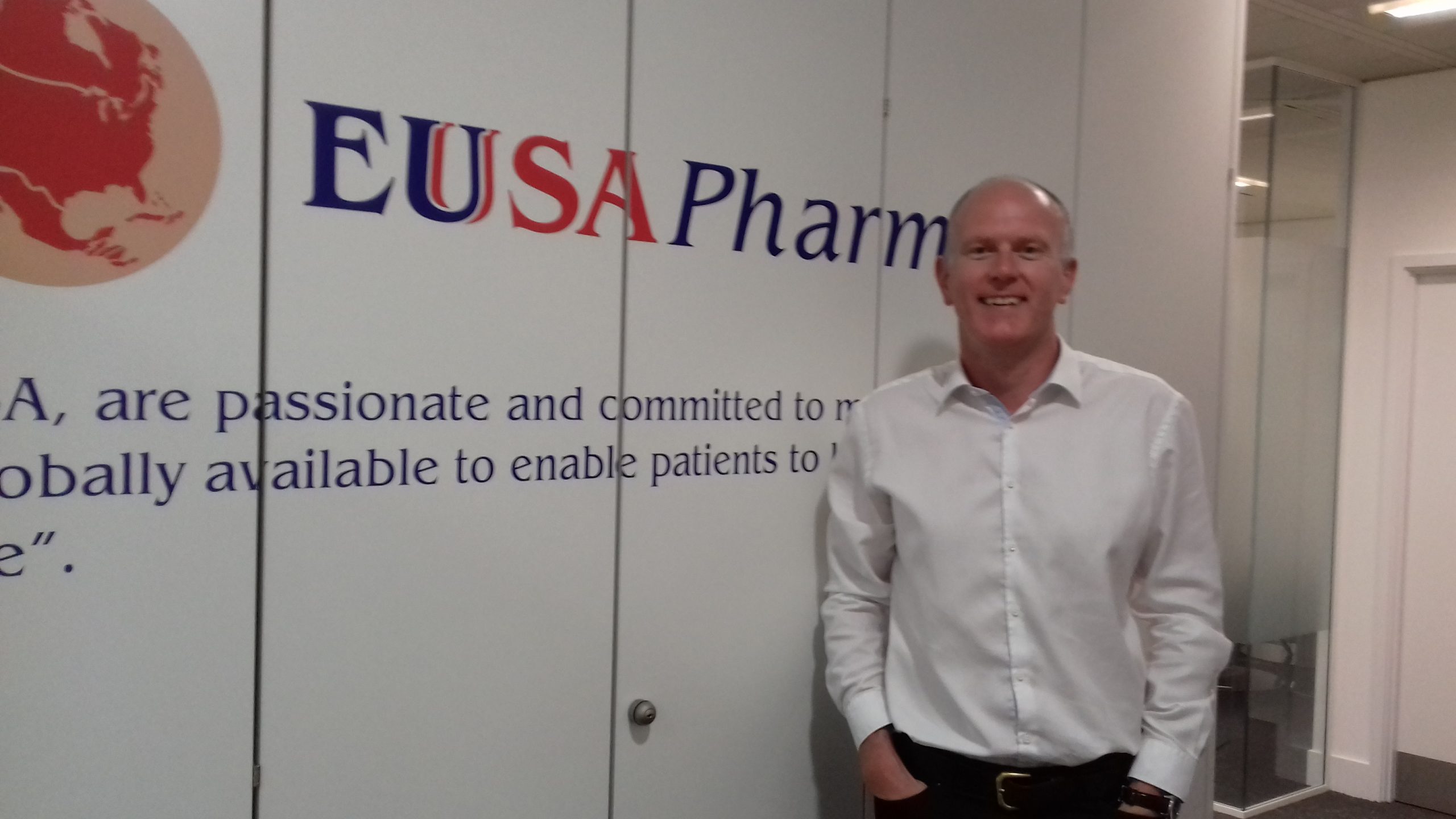EUSA Pharma looks to further in-licensing to build growth

Specialist company EUSA Pharma is looking for new medicines to develop after getting two cancer drugs recommended by European regulators this year.
The UK-based company has had its dinutuximab beta approved in high-risk neuroblastoma, while tivozanib is likely to be approved in advanced renal cell carcinoma soon, after backing from the CHMP scientific committee.
Chief executive Lee Morley told pharmaphorum EUSA is hoping to build on this double success.
Morley said his plans for the company are “ambitious” after it spun out of Jazz Pharmaceuticals in 2015.
He said: “We aim to aggressively in-license more products, either in phase 3, or they could be commercial assets as well.”
Originally founded in 2006, Jazz bought the original EUSA Pharma in 2012, but then decided to spin it back out again as a cancer drugs specialist.
Morley was part of the original EUSA Pharma team, and worked in several management positions before the Jazz takeover.
In the short term there is the small matter of getting dinutuximab beta to market – the sales team is already in place and the launch is going smoothly as EUSA Pharma knows most of the experts who treat neuroblastoma, a rare childhood cancer.
Morley said the company has been able to build up a network of contacts through the European neuroblastoma group, SIOPEN, and the clinical trials that formed the basis of approval for the drug, which the company got hold of through a licence deal with Apeirona last year.
“We have got a presence across many of the major markets and our teams know the KOLs in neuroblastoma as there are only a handful of them.”
The company is already in talks with NICE, but Morley is confident that dinutuximab beta will be able to clear this final hurdle, via the body’s Cancer Drugs Fund.
“We don’t anticipate huge access issues, we are committed to working with the NHS.”
With a US filing for dinutuximab beta planned, EUSA Pharma is looking to find other partners to get the drug approved and marketed in other territories.
Tivozanib
There is also a separate team ready to begin marketing tivozanib, which is set for European approval in the coming months, following a positive opinion from the CHMP in June.
Morley says that EUSA is working on pricing for tivozanib, which will be branded as Fotivda, in advanced renal cell carcinoma.
The plan is to base a pricing strategy around the drug’s primary efficacy data, which was superior to an active comparator in the pivotal trial, and a quality of life argument as Fotivda has been shown to be more tolerable than existing therapies in trials.
Despite there being a raft of drugs already approved in this use from the likes of Novartis and Pfizer, Morley says he isn't fazed by competing with big pharma.
He hopes that the progression-free survival data generated by clinical trials will win over doctors, while patients may be keen to try a treatment that could offer a better quality of life than existing therapies.
“It is effective and that will drive the argument, but it is the tolerability that will appeal to the patients,” said Morley.
With the possibility of two new approvals to add to a small portfolio of products including Caphosol, a mouthwash that helps prevent and treat mouth ulcers caused by chemotherapy, Morley predicts that sales will pick up dramatically over the coming years.
His only concern as a UK-based pharma is that EUSA is likely to begin paying rebates to the NHS under the voluntary pricing scheme agreed between the UK industry and the government.
Once sales exceed £5 million, pharma companies must start contributing to the rebate pharma companies pay to the NHS, a measure designed to encourage doctors to prescribe novel medicines by reducing the financial pressure on the system.
Morley says negotiations for the next Pharmaceutical Price Regulation System (PPRS) agreement should be tweaked so they are more supportive towards small and medium-sized companies.
“The threshold is set way too low,” said Morley. “Over the next year it will become relevant to us during our growth phase.”
However Morley says that the outlook is bright for the new-look EUSA Pharma. “There are around 35 new drugs each year and to have two of them in one company after two years of operation is remarkable.
“The period ahead for EUSA Pharma is certainly exciting as we bring products to a global patient population.”













